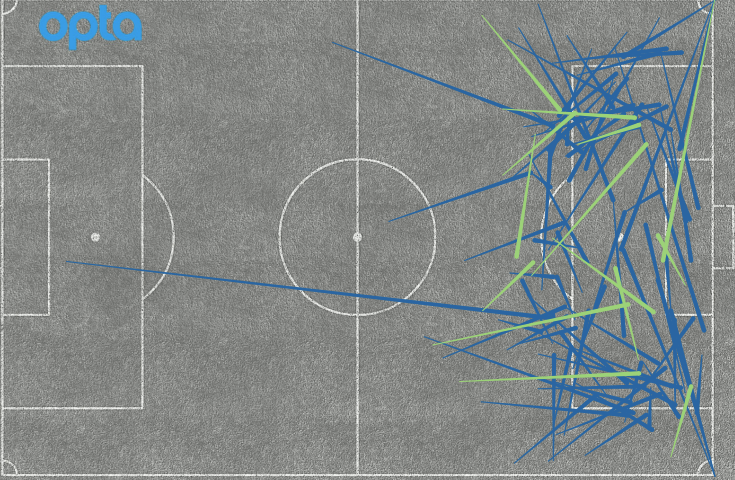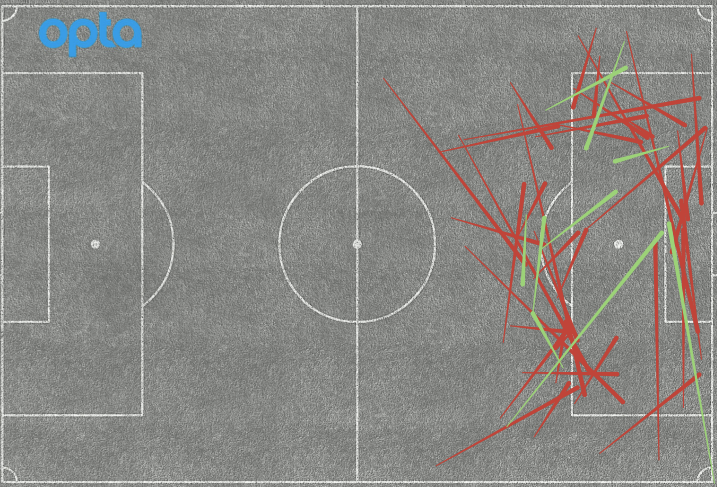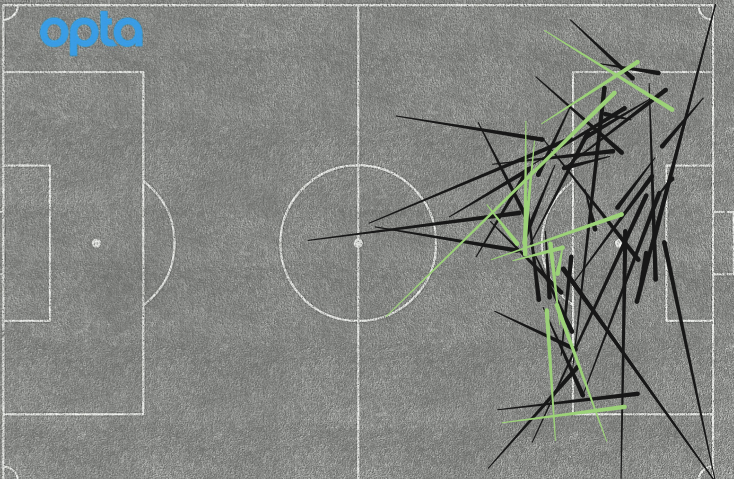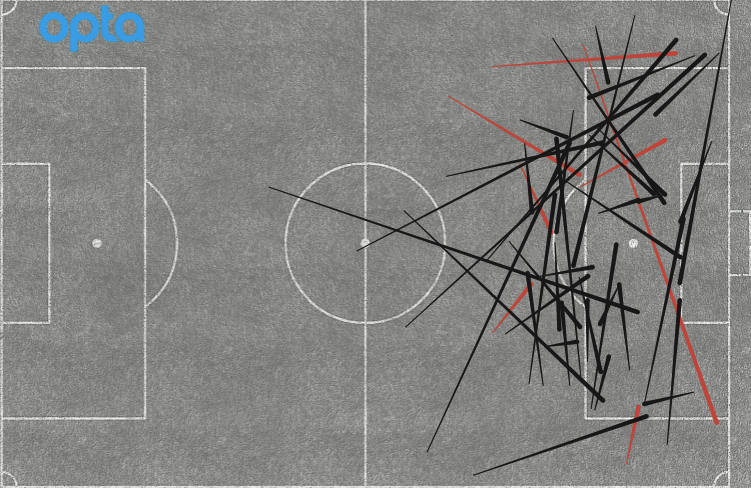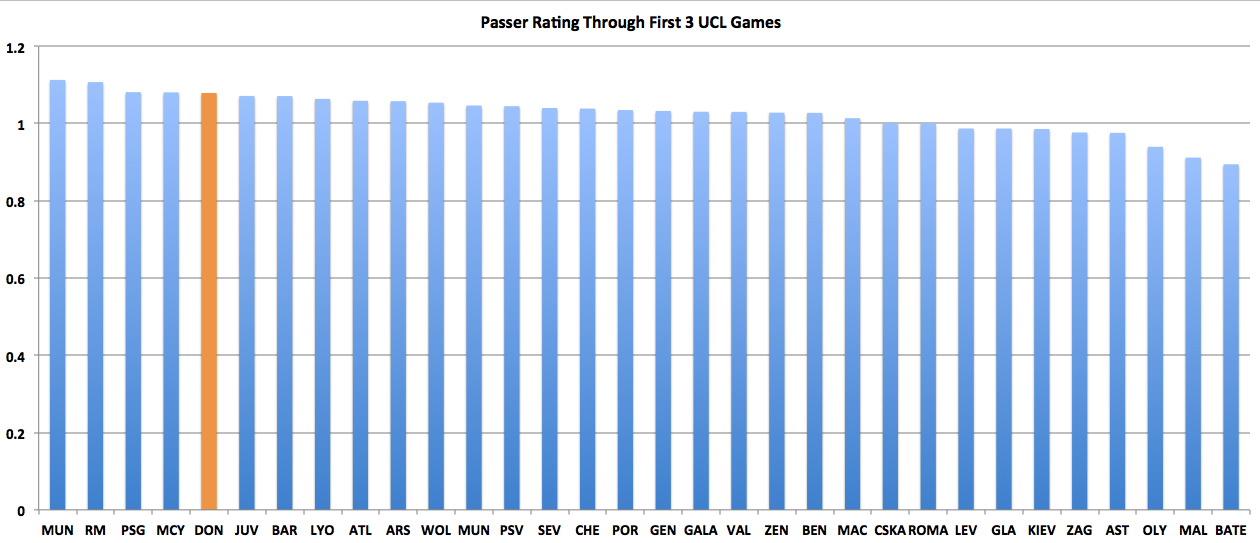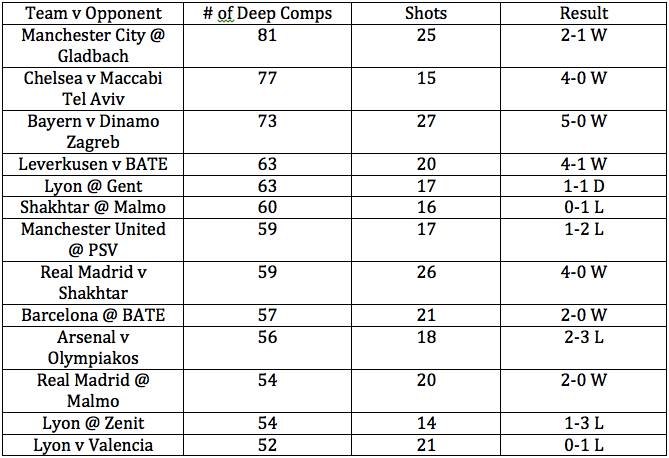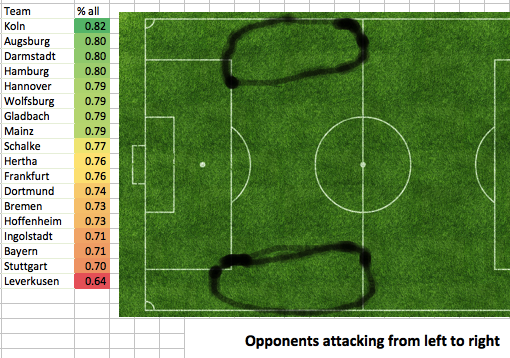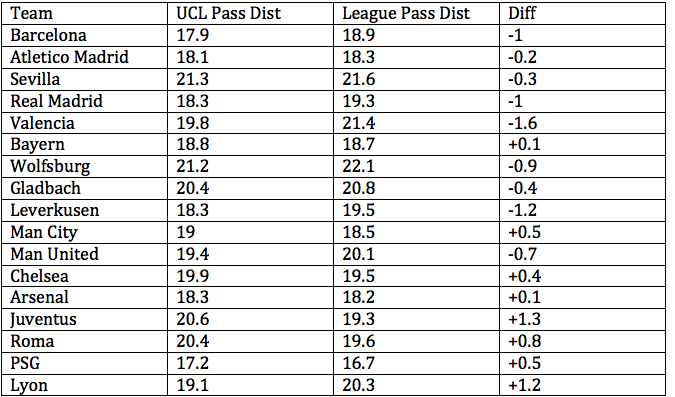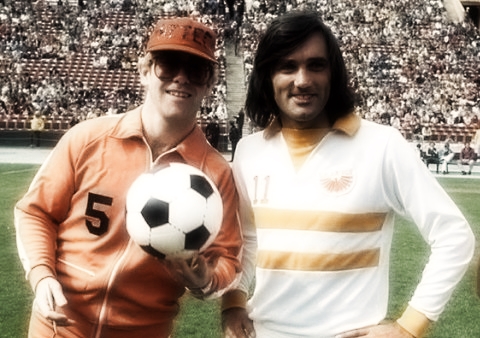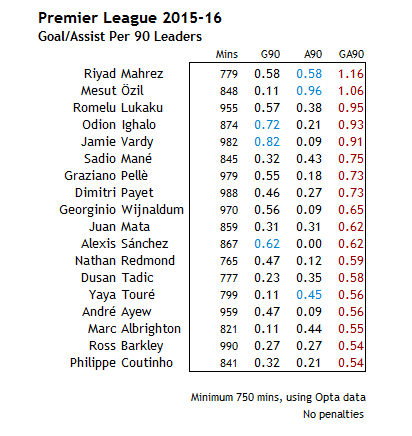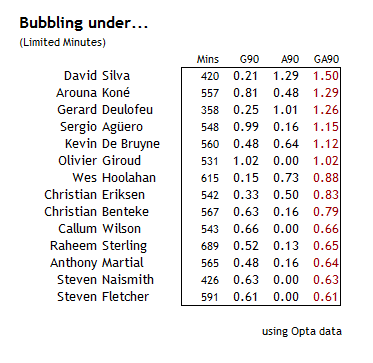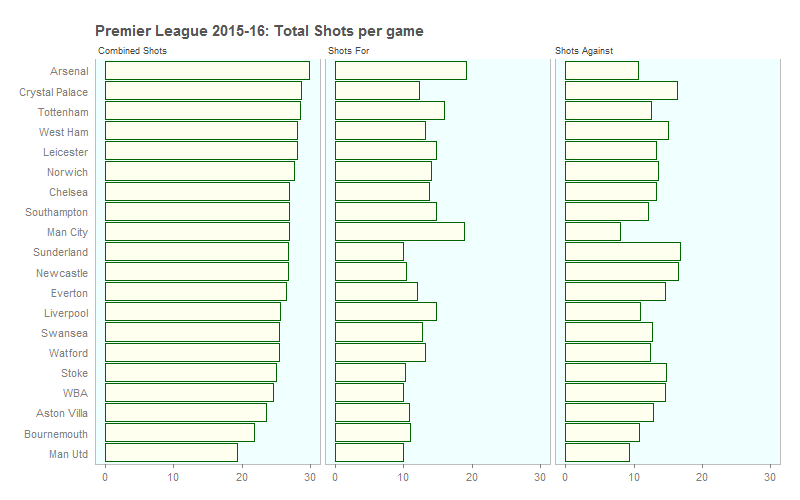Watching a superstar in any sport have to cope with his own mortality is one of the more fascinating things you'll see, especially so if the player is as stubborn as Zlatan Ibrahimovic. A fun example of seeing the battle between player X and father time is seeing what's happened to Kobe Bryant over the past three seasons. Even your average person knows just how bad Kobe is currently. More than anything, Kobe Bryant is the cautionary tale of a headstrong superstar declining to a point where they're way below a net zero in terms of value to a team.
It's no secret that Zlatan is getting up there in age and miles. Hell, this isn't the first time I've even hypothesized about whether Zlatan is declining. In January, I wrote about how the first signs of a possible decline were already there:
Lower body injuries for a guy with Zlatan’s physique are brutal, especially something as finicky as the heel/Achilles. It also doesn’t help that Zlatan has had an insane workload the last 4-5 season which has compounded such things. Since 2009-10, Zlatan hasn’t played a season where his minutes total in all competitions didn’t exceed 3000 minutes. He even had two seasons back to back in 2011-12 and 2012-13 where Zlatan played over 3500 minutes in both years, topping out at 3789 minutes two seasons ago.
It’s astonishing numbers for any striker, especially one who’s in his thirties. It’s no surprise really that Zlatan’s overall production has declined this season as a result.
The tone of that column was more or less me wondering whether Zlatan was truly in decline, not one of assertion. After all, until last season there wasn't any noticeable signs that Zlatan was declining just yet. Well this post will be much more assertive about the same object. The Zlatan Ibrahimovic we know, the one where he can be the entire universe of a team's offense and have that offense be really good is over. Yes, that guy who would try audacious bicycle kicks against England is gone and he isn't coming back. It's no shock really that this is happening, even if it's to the chagrin of some. For one, he can't hold up physically anymore. His 2003 league minutes last season was the lowest amount played since 2007-08 when he was with Inter. So far this season, he's only played in 53.4% of all possible minutes this season which is far below the 87.6% peak from 2012-13, his first season with PSG.
The funny part about Zlatan is that on a statistical level, it's hard to see a drop off in terms of production. Zlatan's 5.9 shots per 90 is the highest rate recorded in the Opta era, 0.8 non penalty goals per 90 is tied for his highest rate in the Opta era along with his first season in PSG and his key passes per 90 are around the same level as some of his other seasons recorded. Zlatan's expected goal output of 5.8 is also mirroring his actual output of 7 goals. In a way, someone could make a decent argument that his play has never been better, which is both a credit both to Zlatan and just how stupidly talented PSG are.
But even saying that, there are genuine signs of his physical decline. For one, he's not even really playing as a pure striker anymore. With the help of Julien Assuncao, he provided me with Zlatan's heatmaps from the 2013-14 season to now:
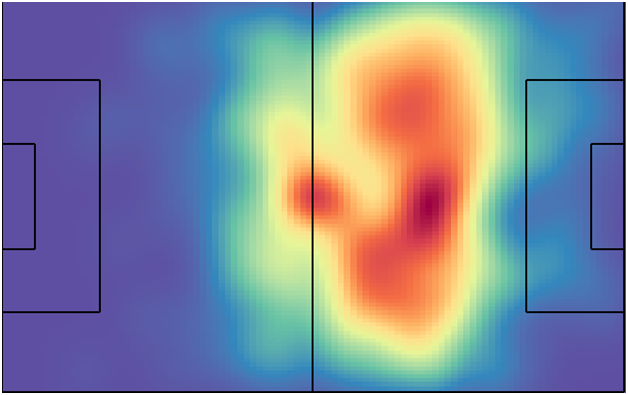
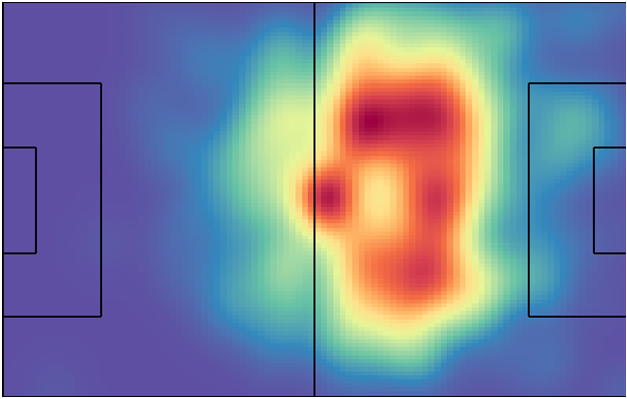
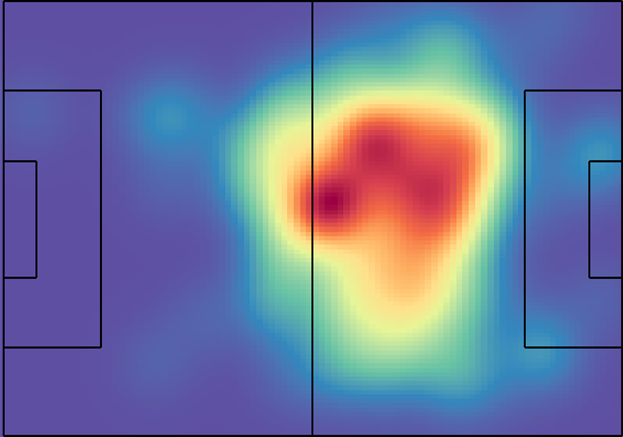
When you watch Zlatan play these days, it's pretty obvious that he doesn't have the athleticism anymore to lead the line as a striker and the heatmaps confirm this. In many ways, Zlatan these days is much more a #10 than he is a #9 (it's one reason why Javier Pastore has had a hard time since coming to PSG. Him and Zlatan overlap too much and no one beats out Zlatan in this type of soccer contextual argument). Just watching his goals from when he first came to PSG shows the considerable contrast in his game then and what it is now:
Perhaps the greatest example of this was last season against Saint Etienne in January, the amount of times he would drop back to receive the ball was very reminiscent of what we're seeing with Wayne Rooney at Manchester United currently.
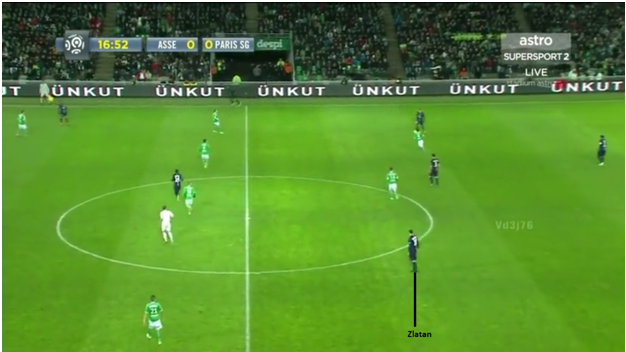
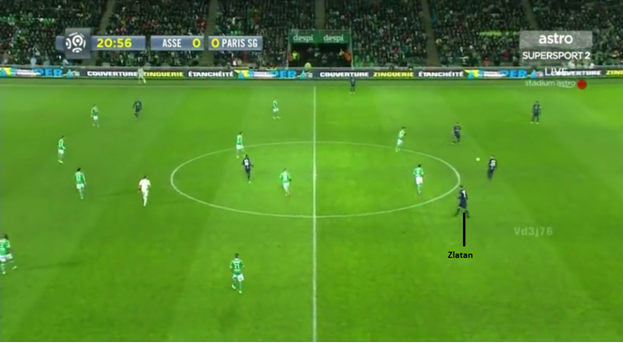
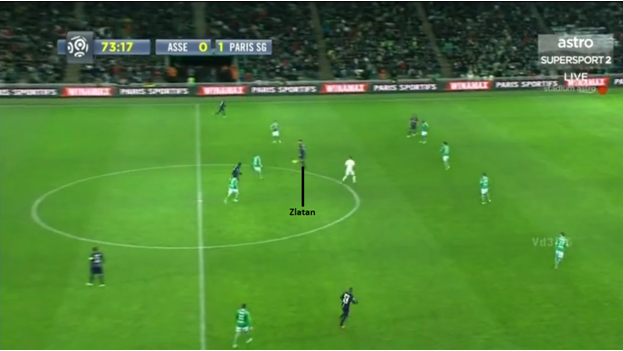 It's no surprise that we're seeing Zlatan's decline. In many ways, it's more shocking that it took this long to happen. Despite the noticeable effects of father time, Zlatan has found a way to remain effective. He's still dropping deep to collect the ball this season, as he's averaging 64.6 touches per 90 this season and 49.3 passes per 90, the 2nd highest rate for both statistics he's had in his time in Ligue 1. His shot profile is at its most highest but it's coming in smarter ways. Less shots where he creates individually and more from capitalizing on the talents his teammates have. With the likes of Angel Di Maria and the fullback stable PSG have, Zlatan should be able to pocket 5-7 goals this season by merely being in the right place at the right time for tap ins. And there will be games where you'll see the Zlatan of 4-5 years ago. Against Saint Etienne last week, if you squinted hard enough you would've seen a clean shaven 29 year old Zlatan Ibrahiovic buzzing around the pitch. He played like the Zlatan of old, he got in behind Saint Etienne's offside trap multiple times including his assist for Cavani where he sprinted down the right hand channel and spoon-fed a ball to Cavani for a tap in. We saw bursts of speed with the ball and it was him at its athletic best. The difference between 4-5 years ago and now is that Zlatan can't summon that type of performance on command like he could before. Zlatan is still really good and it's impressive that he's fighting off father time and playing at a high level at age 34. He's transitioned from the all encompassing talisman who could create magic with the ball on his feet to a more subdued striker who capitalizes on the individual excellence from his teammates. His on the pitch partnership with Edinson Cavani has been the best it's been since the two have been teammates (which in fairness isn't saying much) and that too has helped the aging process. The problem for PSG is that Zlatan is still the figure at the club and with their current roster, it's been at times an awkward fit at times this season. Yes he's played well but it looks like PSG are in between two worlds going forward. With the likes of Di Maria and Lucas, PSG could in theory play a more faster tempo game with those two wingers and a more mobile striker. It could further unlock the passing brilliance of Marco Verratti and maybe even Javier Pastore can occupy the areas that Zlatan loves to set residence (if you're screaming to your computer screen that the answer to all of this is Edinson Cavani, I would just like to show you this to the contrary). The Zlatan question won't go away and there will be a considerable amount of games going forward where he looks slow and out of place. What happens after this season is anyone's guess. It's probably unlikely that PSG would consider re-signing him to an extension considering his age, and the rumors of Ronaldo coming aboard in the summer would involve at the very least Zlatan Ibrahimovic not coming back. With Ronaldo's evolution into a Godzilla like version of Fillipo Inzaghi, he would be the perfect fit for PSG as a #9 and his movements off the ball are ridiculous and would be a godsend to the passing capabilities that PSG have. There's also faint rumors of Romelu Lukaku being another PSG target and while his movements aren't in the same class as Ronaldo, the jump of quality of teammates betwen the likes of Ross Barkley and Kevin Mirallas to Di Maria and Verratti would help massage those issues. When Zlatan Ibrahimovic first signed with PSG three years ago, he was embarking on the remaining points of his prime and there was the real chance that PSG at the time were probably buying up 1-2 declining seasons. Truth be told, that's exactly what happened. Zlatan's first two seasons were incredible, last season showed the possible hints of his decline and now we're seeing a new Zlatan. He no longer is the guy good enough to build a team around (there's probably an argument to be had on whether Zlatan was ever good enough to have a team built around him but that's one for another day) but he isn't Kobe where you feel sad and slightly ashamed at what he's become. Zlatan Ibrahimovic is an above average attacking player who once in a while can conjure up a throwback performance, but he no longer can consistently do the things that made him a meta hero for the past decade. How PSG massage the final days of Zlatan Ibrahimovic's relavancy will go a long way towards whether this is finally the year where they make the Champions League semifinals.
It's no surprise that we're seeing Zlatan's decline. In many ways, it's more shocking that it took this long to happen. Despite the noticeable effects of father time, Zlatan has found a way to remain effective. He's still dropping deep to collect the ball this season, as he's averaging 64.6 touches per 90 this season and 49.3 passes per 90, the 2nd highest rate for both statistics he's had in his time in Ligue 1. His shot profile is at its most highest but it's coming in smarter ways. Less shots where he creates individually and more from capitalizing on the talents his teammates have. With the likes of Angel Di Maria and the fullback stable PSG have, Zlatan should be able to pocket 5-7 goals this season by merely being in the right place at the right time for tap ins. And there will be games where you'll see the Zlatan of 4-5 years ago. Against Saint Etienne last week, if you squinted hard enough you would've seen a clean shaven 29 year old Zlatan Ibrahiovic buzzing around the pitch. He played like the Zlatan of old, he got in behind Saint Etienne's offside trap multiple times including his assist for Cavani where he sprinted down the right hand channel and spoon-fed a ball to Cavani for a tap in. We saw bursts of speed with the ball and it was him at its athletic best. The difference between 4-5 years ago and now is that Zlatan can't summon that type of performance on command like he could before. Zlatan is still really good and it's impressive that he's fighting off father time and playing at a high level at age 34. He's transitioned from the all encompassing talisman who could create magic with the ball on his feet to a more subdued striker who capitalizes on the individual excellence from his teammates. His on the pitch partnership with Edinson Cavani has been the best it's been since the two have been teammates (which in fairness isn't saying much) and that too has helped the aging process. The problem for PSG is that Zlatan is still the figure at the club and with their current roster, it's been at times an awkward fit at times this season. Yes he's played well but it looks like PSG are in between two worlds going forward. With the likes of Di Maria and Lucas, PSG could in theory play a more faster tempo game with those two wingers and a more mobile striker. It could further unlock the passing brilliance of Marco Verratti and maybe even Javier Pastore can occupy the areas that Zlatan loves to set residence (if you're screaming to your computer screen that the answer to all of this is Edinson Cavani, I would just like to show you this to the contrary). The Zlatan question won't go away and there will be a considerable amount of games going forward where he looks slow and out of place. What happens after this season is anyone's guess. It's probably unlikely that PSG would consider re-signing him to an extension considering his age, and the rumors of Ronaldo coming aboard in the summer would involve at the very least Zlatan Ibrahimovic not coming back. With Ronaldo's evolution into a Godzilla like version of Fillipo Inzaghi, he would be the perfect fit for PSG as a #9 and his movements off the ball are ridiculous and would be a godsend to the passing capabilities that PSG have. There's also faint rumors of Romelu Lukaku being another PSG target and while his movements aren't in the same class as Ronaldo, the jump of quality of teammates betwen the likes of Ross Barkley and Kevin Mirallas to Di Maria and Verratti would help massage those issues. When Zlatan Ibrahimovic first signed with PSG three years ago, he was embarking on the remaining points of his prime and there was the real chance that PSG at the time were probably buying up 1-2 declining seasons. Truth be told, that's exactly what happened. Zlatan's first two seasons were incredible, last season showed the possible hints of his decline and now we're seeing a new Zlatan. He no longer is the guy good enough to build a team around (there's probably an argument to be had on whether Zlatan was ever good enough to have a team built around him but that's one for another day) but he isn't Kobe where you feel sad and slightly ashamed at what he's become. Zlatan Ibrahimovic is an above average attacking player who once in a while can conjure up a throwback performance, but he no longer can consistently do the things that made him a meta hero for the past decade. How PSG massage the final days of Zlatan Ibrahimovic's relavancy will go a long way towards whether this is finally the year where they make the Champions League semifinals.
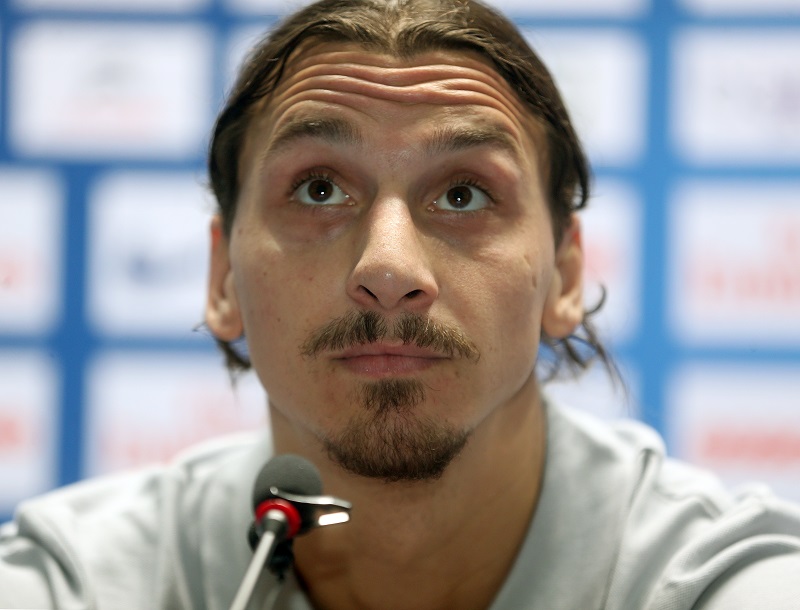
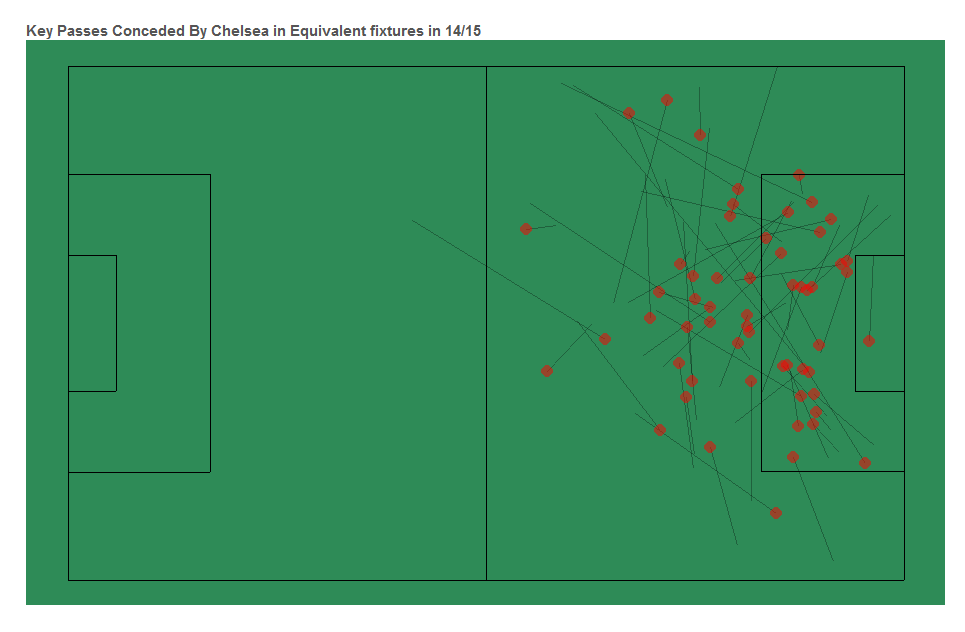

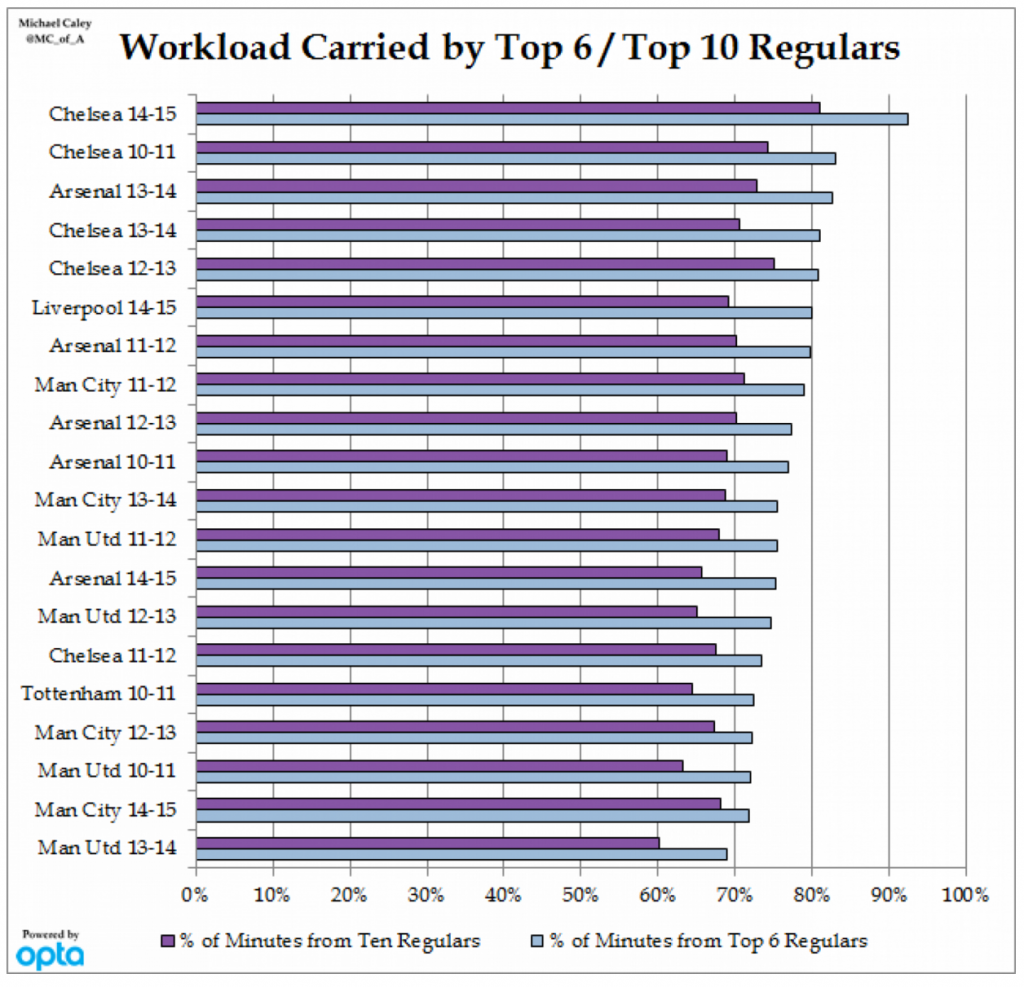 I decided to test a slightly more generic line, one that flitters in and out of punditry without much justification or explanation: Have Chelsea been “found out”? The Theory The hypothesis is relatively simple. By “found out”, we mean that teams facing Chelsea would now be adjusting their tactics in a specific way to hit Chelsea’s weaknesses. Every Premier League team will have members of staff on opposition analysis, and so it’s intuitive to suggest that once a method of attacking a weakness succeeded, other teams may try to emulate it. In Chelsea’s opening game of the season, Swansea
I decided to test a slightly more generic line, one that flitters in and out of punditry without much justification or explanation: Have Chelsea been “found out”? The Theory The hypothesis is relatively simple. By “found out”, we mean that teams facing Chelsea would now be adjusting their tactics in a specific way to hit Chelsea’s weaknesses. Every Premier League team will have members of staff on opposition analysis, and so it’s intuitive to suggest that once a method of attacking a weakness succeeded, other teams may try to emulate it. In Chelsea’s opening game of the season, Swansea 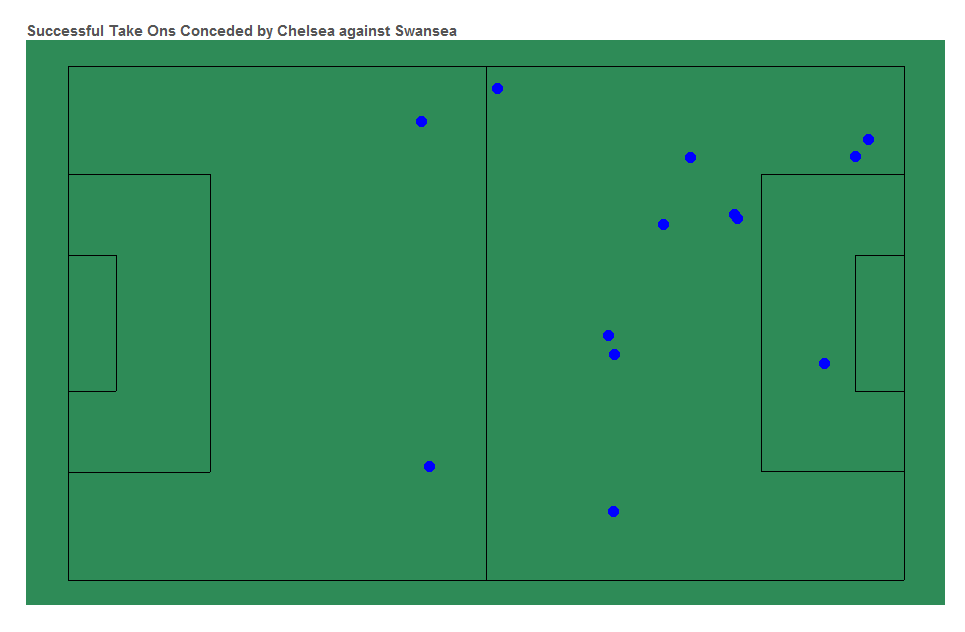
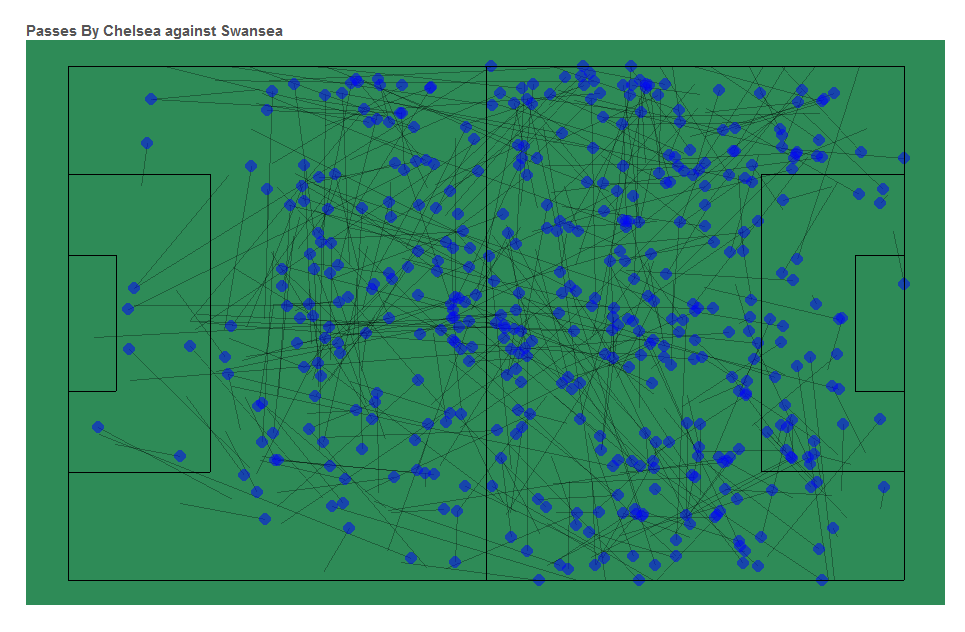
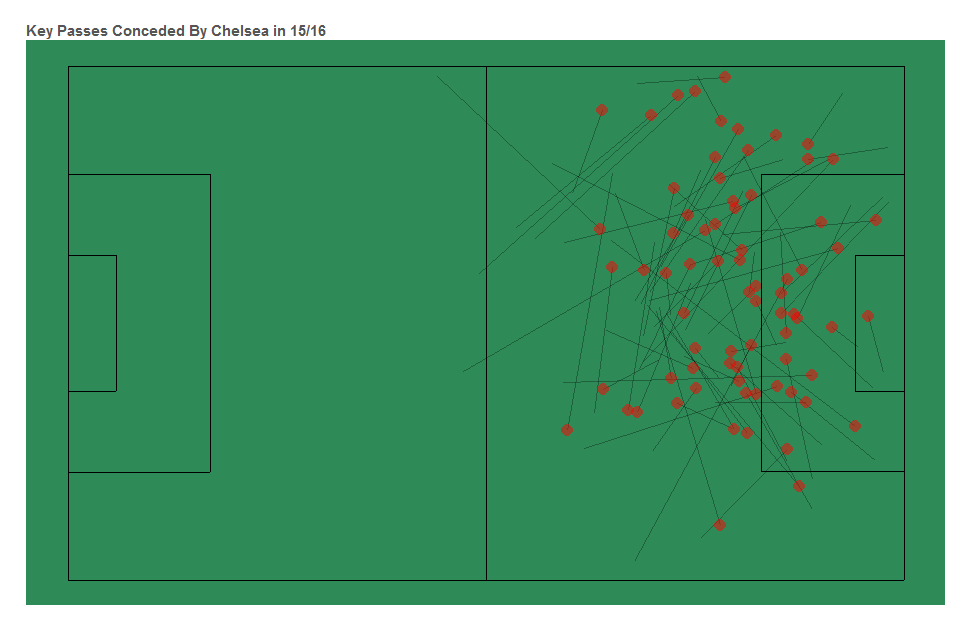
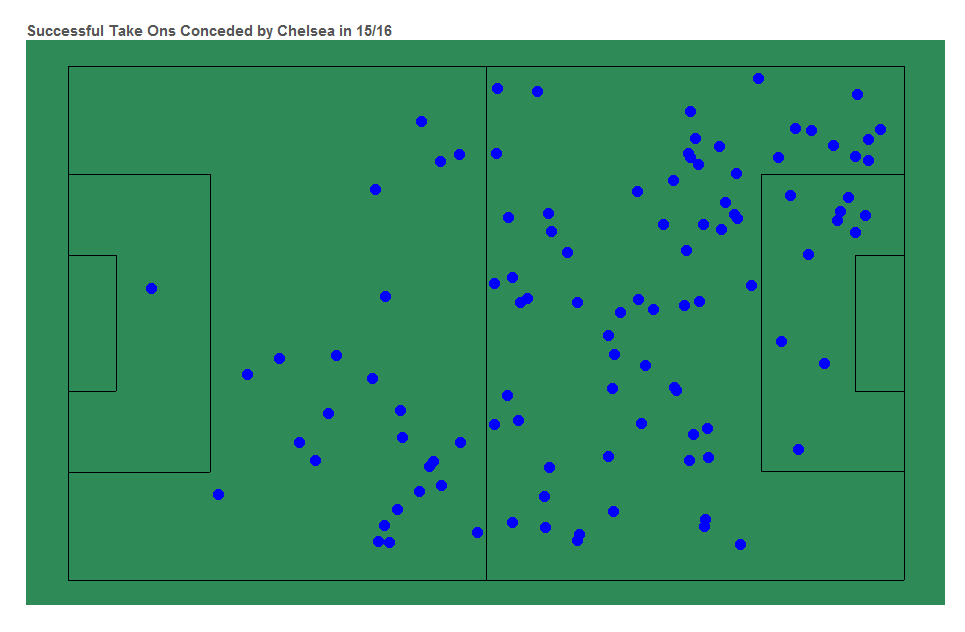
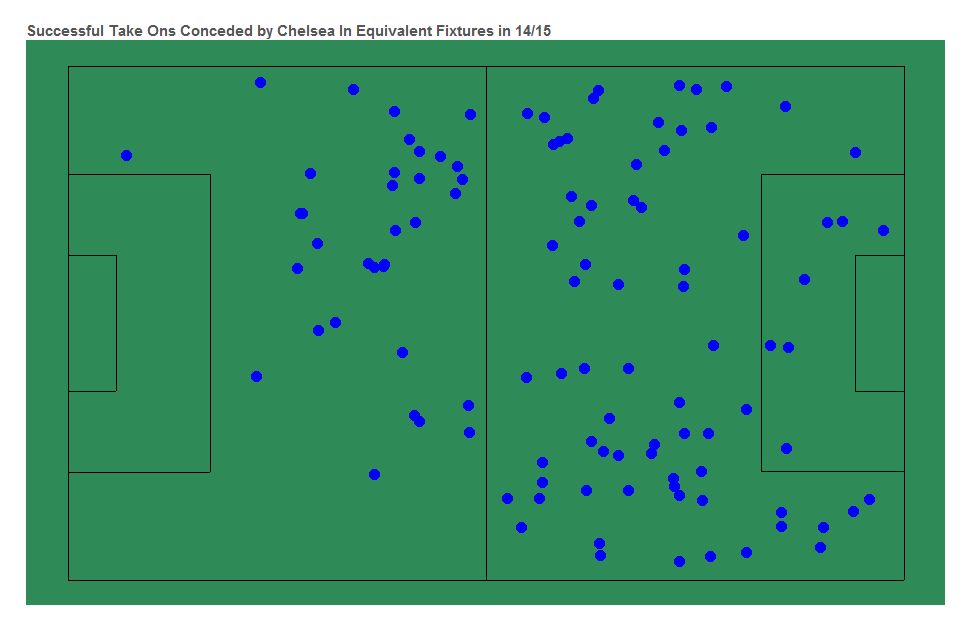 Successful take-ons conceded tell a similar story. The prevalence of dribbles in the top right corner is striking compared to the year before, as is the lack of successful attempts to get in behind Cesar Azpilicueta. Chelsea are also giving up more successful dribbles in central areas, especially slightly to the right where Cesc Fabregas or whoever partners Matic would be expected to help cover.
Successful take-ons conceded tell a similar story. The prevalence of dribbles in the top right corner is striking compared to the year before, as is the lack of successful attempts to get in behind Cesar Azpilicueta. Chelsea are also giving up more successful dribbles in central areas, especially slightly to the right where Cesc Fabregas or whoever partners Matic would be expected to help cover. 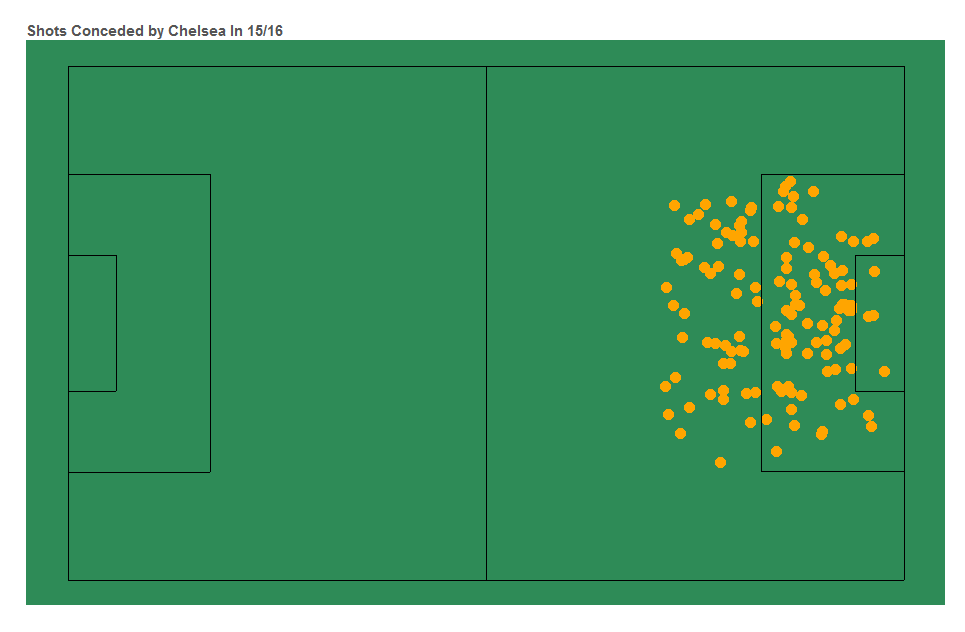
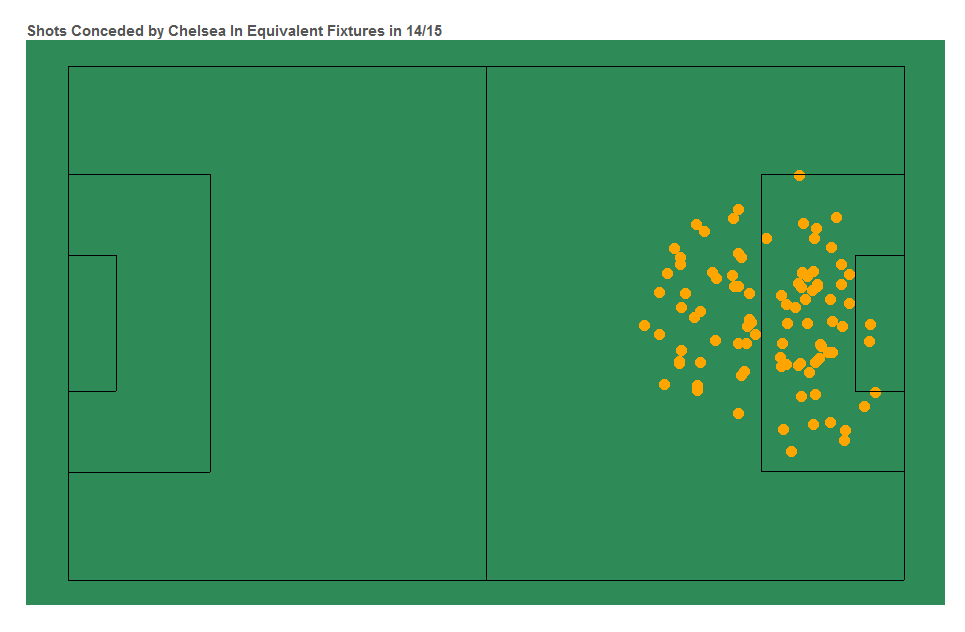 This has all resulted in Chelsea conceding a higher volume of high quality shots than they did in the corresponding fixtures last year, as can be seen from the rise in the number of shots in the box. Meanwhile, Chelsea’s attack is operating relatively similarly with two very noticeable differences: Eden Hazard is dribbling and producing less, and Diego Costa is having nearly half as many shots as he did per 90 last season with less than half the conversion rate. It’s worth remembering that although Chelsea did play some really good football at the beginning of last season, the second half of their season was more about grinding results en route to the title. And that as a game-plan is fine if your defence is functional, but less so if your Achilles heel has become increasingly obvious to teams about to play you.
This has all resulted in Chelsea conceding a higher volume of high quality shots than they did in the corresponding fixtures last year, as can be seen from the rise in the number of shots in the box. Meanwhile, Chelsea’s attack is operating relatively similarly with two very noticeable differences: Eden Hazard is dribbling and producing less, and Diego Costa is having nearly half as many shots as he did per 90 last season with less than half the conversion rate. It’s worth remembering that although Chelsea did play some really good football at the beginning of last season, the second half of their season was more about grinding results en route to the title. And that as a game-plan is fine if your defence is functional, but less so if your Achilles heel has become increasingly obvious to teams about to play you. 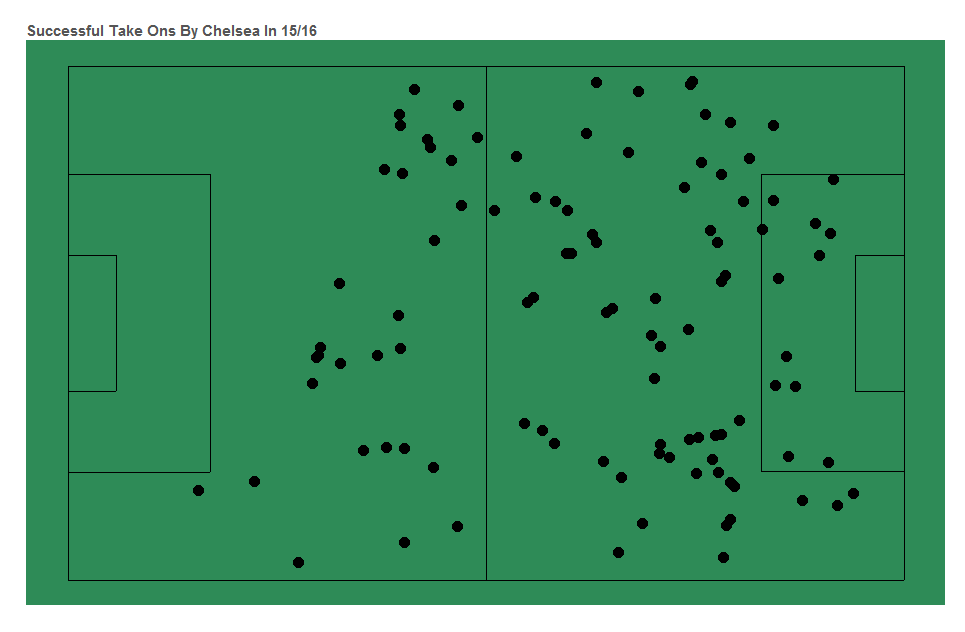
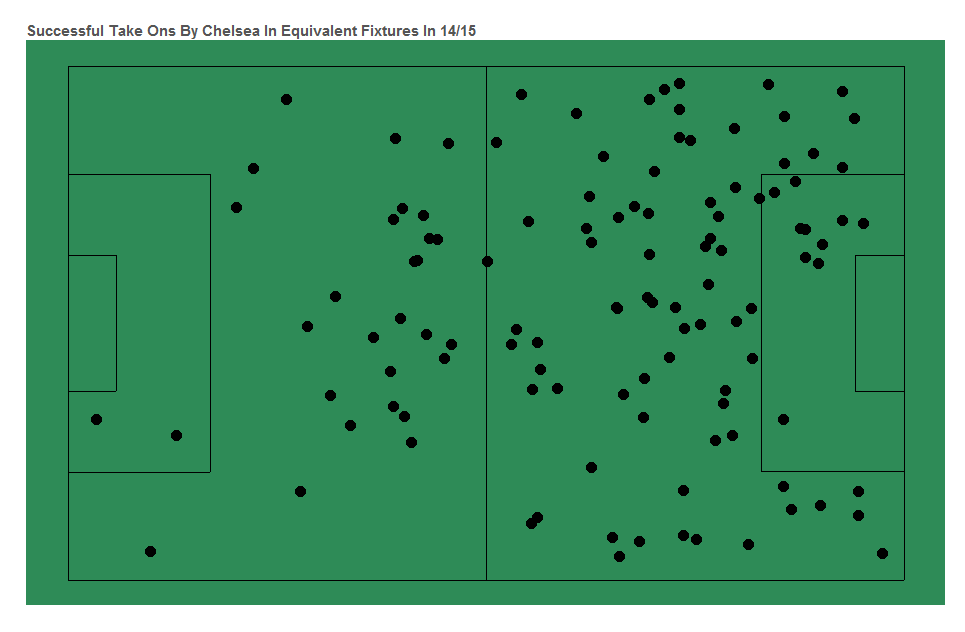 Looking at Chelsea’s successful dribbles in either sample, it’s interesting how much less Eden (or Pedro when Jose has bravely dropped the Belgian) has managed to get in behind the opposition’s right back compared to last season. This is where Eden is at his best – 1on1 with the fullback – but this season he is completing just over 1.5 less successful dribbles per 90. It’s easy to say that this is a drop off in individual performance, but it’s almost definitely related to how teams are playing against Chelsea. Note - in the below visualisations, Chelsea are attacking from the right to left.
Looking at Chelsea’s successful dribbles in either sample, it’s interesting how much less Eden (or Pedro when Jose has bravely dropped the Belgian) has managed to get in behind the opposition’s right back compared to last season. This is where Eden is at his best – 1on1 with the fullback – but this season he is completing just over 1.5 less successful dribbles per 90. It’s easy to say that this is a drop off in individual performance, but it’s almost definitely related to how teams are playing against Chelsea. Note - in the below visualisations, Chelsea are attacking from the right to left. 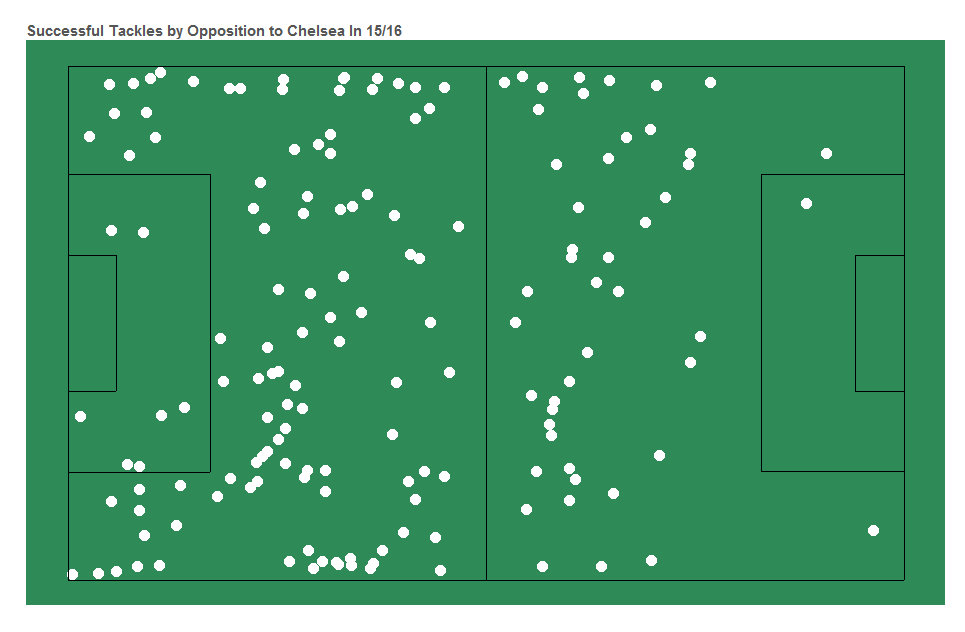
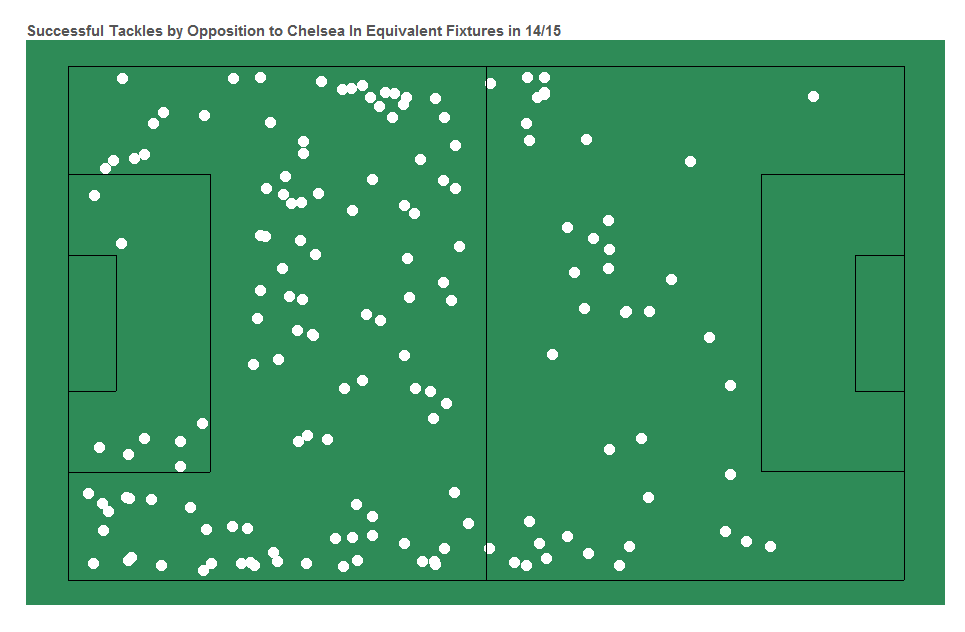 It’s possible that teams are forcing Hazard inside or isolating him so that he has no choice. Comparing tackle locations of teams facing Chelsea, it looks as if this might be the case – there seem to be more tackles on the edge of the box where Eden would be coming in. This doesn’t necessarily prove anything, but adds strength to an overall hypothesis that teams are adjusting their tactics to try and maximise their chance of frustrating Chelsea. Conclusion It’s clear that, at least to some extent, teams are playing Chelsea differently this year. The harder thing to decide is whether or not this is an intentional effect of a change in tactics, as in teams “finding out” how to play against Chelsea, or whether or not it’s just Chelsea capitulating in certain areas. The hypothesis has a few strong fundamental facts to stand on, though: Mourinho’s tactics haven’t changed since last season, and neither has the majority of his team. This is almost exactly the same team, manager and tactics that won the title, which is convenient for trying to identify tactical changes of the opposing teams. Personally, I was surprised by how obvious some of the differences were between the season samples. Let me know what you think, I'm on
It’s possible that teams are forcing Hazard inside or isolating him so that he has no choice. Comparing tackle locations of teams facing Chelsea, it looks as if this might be the case – there seem to be more tackles on the edge of the box where Eden would be coming in. This doesn’t necessarily prove anything, but adds strength to an overall hypothesis that teams are adjusting their tactics to try and maximise their chance of frustrating Chelsea. Conclusion It’s clear that, at least to some extent, teams are playing Chelsea differently this year. The harder thing to decide is whether or not this is an intentional effect of a change in tactics, as in teams “finding out” how to play against Chelsea, or whether or not it’s just Chelsea capitulating in certain areas. The hypothesis has a few strong fundamental facts to stand on, though: Mourinho’s tactics haven’t changed since last season, and neither has the majority of his team. This is almost exactly the same team, manager and tactics that won the title, which is convenient for trying to identify tactical changes of the opposing teams. Personally, I was surprised by how obvious some of the differences were between the season samples. Let me know what you think, I'm on 
